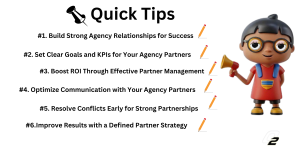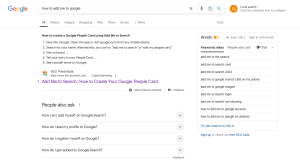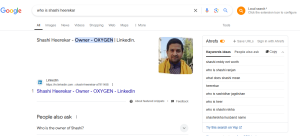
by Shashikanth Heerekar | Dec 6, 2024 | All Things about Marketing
Discover how to rank ambulance services using SEO! Boost visibility for EMS, patient transport, and urgent care. Find the people that need you the most!
Introduction
Ambulance services are a cornerstone of modern healthcare, providing critical care and emergency medical services (EMS) when time is of the essence. In a competitive market, ambulance service providers need to stand out. Leveraging effective SEO (Search Engine Optimization) strategies can ensure your services are visible to those who need them most. This comprehensive guide will explore how to rank ambulance services using proven SEO methods while incorporating essential keywords like medical transportation, paramedic services, and emergency response.
Understanding the SEO Needs of Ambulance Services
Why SEO Matters for Ambulance Services
The demand for emergency medical services is often urgent and localized. When people search for ambulance dispatch or urgent care in emergencies, your services must appear at the top of search results. SEO helps bridge the gap between critical service providers and those in need.
Identifying Your Audience and Keywords
Effective SEO begins with knowing your audience:
- Target Audience: Patients requiring medical care, hospitals needing patient transport, and families seeking critical care transport.
- Key Keywords: Include terms like ground ambulance, air ambulance, inter-hospital transfer, neonatal transport, and disaster response.
Use tools like Google Keyword Planner to identify high-traffic keywords related to EMS and paramedic services.
Building a User-Friendly Website
A well-structured and optimized website is your digital storefront. Here’s how to ensure it performs well:
On-Page SEO
- Incorporate keywords like ambulance services, healthcare services, and emergency preparedness in titles, headings, and meta descriptions.
- Use engaging content to explain services like pediatric or geriatric transport for specific demographics.
- Add FAQs addressing common queries such as “What is a medical evacuation?” or “How does an air ambulance work?”
Technical SEO
- Optimize site speed to ensure pages load quickly, particularly on mobile devices.
- Use schema markup for emergency medical technician (EMT) profiles, paramedic services, and service areas.
- Ensure the site is mobile-friendly, as most emergency searches occur on smartphones.
Creating High-Quality Content
Content is key to building authority and attracting traffic. Focus on creating engaging, keyword-rich articles, videos, and guides.
Blog Ideas for Ambulance Services
- “The Role of Paramedics in Disaster Response”: Highlight the importance of trained professionals in emergencies.
- “Understanding Critical Care Transport”: Explain the advanced care provided during inter-hospital transfers.
- “How to Prepare for Medical Evacuation”: Provide actionable tips for patients and families.
Include Visual Content
Use videos and infographics to demonstrate services like neonatal transport, pediatric transport, or a day in the life of a first responder.
Mastering Local SEO
Ambulance services are inherently local, making local SEO a critical component of your strategy.
Optimize Your Google Business Profile
- Include up-to-date company details, such as emergency phone numbers and service hours.
- Use images of your fleet, such as air ambulances or ground ambulances.
- Encourage satisfied clients to leave reviews, improving your credibility and ranking.
Target Local Keywords
- Use location-specific keywords like “ambulance services in [City]” or “urgent care near me.”
- Build local backlinks from hospitals, clinics, and other healthcare service providers.

Leveraging AI and Technology for SEO
Modern tools powered by artificial intelligence (AI) and machine learning can streamline your SEO efforts:
- Keyword Research: Use AI tools to identify high-impact keywords like ambulance technician or paramedic.
- Content Optimization: Employ AI for natural language processing to improve your content’s readability and ranking potential.
- Analytics Tools: Use AI-powered platforms to monitor the performance of blogs about emergency preparedness or medical evacuation.
Building a Backlink Strategy
To rank well, you need backlinks from reliable sources.
Collaborate with Industry Leaders
- Partner with healthcare services providers, EMS organizations, and hospitals.
- Write guest posts for medical blogs on topics like “The Future of Medical Transportation” or “The Role of AI in Ambulance Dispatch.”
Create Shareable Resources
- Develop infographics on “How EMS Works in Emergencies” or guides to “Emergency Preparedness.”
- Share these resources on social media platforms to increase backlinks.
Optimize for Mobile and Voice Search
With the rise of mobile and voice search, it’s crucial to adapt your SEO strategy:
- Use conversational keywords like “ambulance near me” or “fast emergency response.”
- Ensure your website is easy to navigate on mobile devices, with prominent emergency contact buttons.
Measuring and Refining Your SEO Strategy
SEO is not a one-time effort. Consistently monitor and improve your strategies:
- To track visitors and conversions, tools such as Google Analytics are used.
- Check rankings for keywords like critical care transport and emergency medical technician (EMT).
- Adjust your content strategy based on performance data.
Conclusion
Ranking ambulance services online is not just about visibility; it’s about ensuring timely access to critical care. By implementing targeted SEO strategies, focusing on local and mobile search, and creating valuable content, your ambulance services, EMS, and medical transportation can reach those who need them most. Start optimizing today to save lives and grow your business.
Faq’s
Why is SEO important for ambulance services?
SEO is vital for ambulance services because it ensures that people can quickly find them during emergencies. Optimized websites appear at the top of search results when users search for terms like emergency medical services (EMS), medical transportation, or urgent care, increasing their visibility and saving lives.
How can local SEO benefit ambulance services?
Local SEO helps ambulance dispatch, and emergency response services appear in location-specific searches. By optimizing for terms like “ambulance services near me” or “urgent care in [City]” and listing your business on Google, you ensure your services reach the local community effectively.
What keywords should ambulance services use to improve SEO?
Keywords like ambulance services, emergency medical services, paramedic services, and patient transport are essential for improving SEO. Depending on your offerings, you can use niche terms like air ambulance, neonatal transport, and critical care transport to target specific audiences.
How can content marketing help rank ambulance services?
Content marketing allows you to showcase your healthcare services and emergency preparedness expertise. Writing blogs about topics like “The Role of a First Responder in Disaster Response” or “Understanding Medical Evacuation Processes” informs your audience and improves your SEO rankings by naturally including relevant keywords.
What role does AI play in SEO for ambulance services?
Artificial intelligence (AI) and machine learning can enhance your SEO strategy by identifying the best keywords, optimizing content, and analyzing user behaviour. AI tools also help optimize content for readability and engagement, ensuring your website ranks higher in search results.
What is the difference between air ambulance and ground ambulance services?
An air ambulance is used for long-distance or critical patient transport, especially in disaster response or medical evacuation cases. In contrast, a ground ambulance is more suited for local urgent care or inter-hospital transfers. Highlighting these services in your SEO strategy can help target specific search queries.
How can ambulance services optimize for mobile and voice search?
Since most emergency searches happen on mobile devices, websites must be mobile-friendly and load quickly. For voice search, optimizing for conversational queries like “Find an ambulance technician near me” or “Closest EMS services” can improve accessibility for users.

by Shashikanth Heerekar | Dec 4, 2024 | All Things about Marketing
Discover how to rank HVAC services effectively with this comprehensive step-by-step guide. Learn the meaning of HVAC, its systems, and industry insights to boost visibility and grow your business online.
Introduction
In today’s highly competitive landscape, ranking your HVAC services at the top of search results is essential for attracting more clients. HVAC, which stands for heating, ventilation, and air conditioning, is vital, especially with increasing demand for climate control solutions. This manual provides step-by-step instructions for improving your HVAC company’s internet visibility and growth.
Discovering how to rank HVAC services online effectively can significantly boost your business visibility and customer base. In this detailed guide, we’ll delve into the HVAC industry, define key concepts, explore types of HVAC systems, and provide a step-by-step plan to optimize your HVAC services for search engines.
What is HVAC?
HVAC stands for Heating, Ventilation, and Air Conditioning. It describes the technology used to control the temperature, humidity, and air quality, guaranteeing year-round indoor comfort for residences and commercial buildings. An HVAC system includes air conditioners, furnaces, heat pumps, ductwork, and thermostats.
Key Terms in HVAC:
- HVAC System: A combination of heating, cooling, and air circulation equipment.
- HVAC refers to integrating air conditioning, ventilation, and heating systems.
- HVAC Cooling Systems: Focus on lowering indoor temperatures, typically involving air conditioning units or heat pumps.
- HVAC Ventilation: Ensures fresh air circulation and removal of stale air, improving air quality.
- HVAC in Construction: Plays a critical role in building designs for maintaining energy efficiency and comfort.
Types of HVAC Systems
- The most popular HVAC system comprises outdoor and indoor heating and cooling units.
- Ductless Mini-Split Systems: Ideal for homes without existing ductwork, providing room-specific climate control.
- Packaged HVAC Systems: Compact units that house all components in one cabinet, suitable for smaller spaces.
- Geothermal HVAC Systems: Energy-efficient systems that leverage the Earth’s natural heat for heating and cooling.

Step-by-Step Guide to Ranking HVAC Services
-
Understand Your Target Audience
- Identify the needs of potential customers: Are they looking for residential HVAC installations, repairs, or maintenance?
- Employ local search terms such as “HVAC services near me” or “air conditioning repair” to attract local clients.
- When addressing pricing strategies in the HVAC industry, understanding HVAC flat rate pricing can be crucial for service providers who wish to offer transparent and consistent prices. This method helps streamline operations by focusing on per-job rates rather than hourly charges, driving both customer satisfaction and operational efficiencies.
Keyword Research and Implementation
Incorporate pertinent keywords into your headings, meta descriptions, and content. Examples include:
- What is HVAC?
- HVAC system meaning
- Heating, ventilation, and air conditioning services
- HVAC cooling and heating systems
Create High-Quality Content
Write blog posts, guides, and FAQs to educate your audience on HVAC systems and services. For example:
- How Does an HVAC System Work?
- Benefits of Energy-Efficient HVAC Systems
- Maintenance Tips for HVAC Units
Optimize Your Website
- Technical SEO: Make sure your website loads quickly, is error-free and is optimized for mobile devices.
- On-Page SEO: Use target keywords in titles, headings, and alt text for images.
- Local SEO: Register your business on Google My Business and include accurate NAP (Name, Address, Phone) details.
Leverage Online Directories
List your HVAC commercial enterprise on respectable directories like Yelp, Angi, and Thumbtack. This will increase your visibility and foster trust in the community.
- Earn Backlinks from Industry Websites
Collaborate with industry bloggers, HVAC product manufacturers, and construction companies for backlinks to your site. For example:
- Write guest posts for HVAC blogs.
- Provide case studies for manufacturers of HVAC equipment.
Engage on Social Media
Use platforms like Facebook, Instagram, and LinkedIn to share updates, customer testimonials, and educational content about HVAC systems.
Invest in Paid Advertising
Ads on Facebook and Google can target particular audiences looking for HVAC services. Keywords like “HVAC installation” and “air conditioning repair” work well for pay-per-click campaigns.
Encourage Reviews
Request evaluations from pleased clients on Yelp, Google, and other websites. Good reviews boost the legitimacy of your company and have an impact on rankings.
Monitor and Adjust Your Strategy
Use tools like Google Analytics, SEMrush, or Ahrefs to track website traffic, keyword rankings, and user behaviour. Based on performance metrics, adjust your strategy.
Why Ranking HVAC Services Matters
HVAC companies must stand out in a crowded industry. Ranking higher on search engines ensures you:
- Reach more customers actively searching for HVAC services.
- Build authority in the HVAC industry.
- Increase your income by turning internet visitors into devoted clients.
Conclusion
Ranking HVAC services online requires a combination of technical SEO, content creation, and local marketing strategies. Understanding HVAC systems and optimizing your online presence can enhance visibility and dominate your local market. Follow this guide step-by-step, and you’ll be on your way to growing your HVAC business successfully.
Let’s start today—optimize your HVAC services and make your business the go-to choice for comfort solutions!
(FAQs)
What is HVAC, and how does it operate?
HVAC stands for Heating, Ventilation, and Air Conditioning. It uses duct systems, air conditioners, and furnaces to control indoor temperature, humidity, and air quality.
What is the importance of HVAC systems in homes and businesses?
HVAC systems ensure comfort by maintaining ideal indoor temperatures, improving air quality, and supporting energy efficiency. They are necessary in commercial, industrial, and residential situations.
What are the different types of HVAC systems?
Common HVAC systems include split systems, ductless mini-splits, packaged units, and geothermal systems, each designed for specific needs like space, efficiency, and climate control.
How does an HVAC system improve air quality?
HVAC systems use filters and ventilation to remove pollutants, allergens, and dust from the air while introducing fresh outdoor air to enhance overall indoor air quality.
Why is local SEO so important for companies that provide HVAC services?
Local SEO helps HVAC businesses rank higher in local search results, making it easier for potential customers in their area to find and contact them for services.
How can keyword optimization help rank HVAC services?
Using relevant keywords like “HVAC system repair” or “air conditioning installation” in your content and meta tags boosts search engine visibility for your HVAC services.
What are the most common HVAC maintenance tips for homeowners?
To ensure your HVAC system operates efficiently and lasts longer, regularly replace filters, clean vents, check thermostats, and schedule professional inspections.

by Shashikanth Heerekar | Nov 12, 2024 | All Things about Marketing, Insights
Explore Global Trade Review (GTR) to stay updated on the latest news, insights, and trends in trade finance. Learn about market dynamics, regulatory changes, and expert analysis to help navigate global trade successfully.
Introduction
Global Trade Review (GTR) has become a cornerstone resource for professionals in the trade finance industry. With the ever-evolving dynamics of global trade, GTR plays a crucial role in delivering timely insights, analysis, and resources on international trade, trade finance, and related topics. From covering the latest updates in global trade to hosting industry-leading events, GTR supports companies and stakeholders in navigating the complexities of the trade world. This article delves into GTR’s role, recent updates, awards, and other contributions to the trade finance industry.
The Role of Global Trade Review (GTR) in Trade Finance
GTR provides an indispensable platform for sharing knowledge, analysis, and news across various trade finance topics, including global trade, international trade, export and import finance, supply chain finance, and trade credit insurance. By gathering insights from industry experts and thought leaders, GTR helps businesses make informed decisions in a landscape impacted by geopolitical risks, economic sanctions, and advances in digital trade.
Key Areas Covered by GTR:
- Trade Finance News and Trends – Cover market trends, regulatory updates, and industry innovations.
- Supply Chain Finance – Insights on securing supply chain financing and addressing liquidity challenges.
- Geopolitical and Economic Analysis – Updates on global economic policies, sanctions, and trade barriers.
- Sustainable Trade – Analysis of ESG (environmental, social, and governance) principles shaping sustainable trade practices.
- Digitalization in Trade – Exploring blockchain, digital documents, and technology solutions for a modern trade finance infrastructure.
GTR delivers content that supports businesses in meeting challenges and strengthens the trade finance community by fostering dialogue and collaboration among its members.
Latest Topics and Updates on GTR
1. Digital Trade Transformation
GTR has prominently focused on the digitalization of trade in recent years. Advancements in blockchain and digital documentation are shaping the future of digital trade by enhancing efficiency and reducing fraud. GTR has reported extensively on digital trade initiatives, covering technologies that enable real-time tracking, secure payments, and faster transaction processing.
2. Sustainable and Responsible Trade
The demand for sustainable trade has gained momentum, and GTR plays a critical role in promoting these conversations. With ESG becoming a priority for businesses globally, GTR shares insights on sustainable trade practices, such as green financing and environmentally friendly logistics, that contribute to a positive global impact. Emerging regulations like the EUDR are also shaping sustainable trade by requiring greater transparency and due diligence in sourcing practices, particularly in sectors linked to agriculture and forestry.
3. Addressing Geopolitical and Economic Risks
GTR provides an in-depth analysis of geopolitical risks and economic sanctions that impact global trade. For example, the publication closely follows economic sanctions affecting trade with Russia, China, and other nations. These insights help companies develop strategies for mitigating risks associated with international transactions and trade agreements.
4. Trade Finance in a Post-Pandemic Economy
The COVID-19 pandemic reshaped global trade, creating supply chain disruptions and accelerating the need for digital transformation. GTR has explored how companies are recovering from these impacts and adapting their trade finance practices to a post-pandemic world, highlighting trends in remote working, online payment systems, and risk management strategies.
Global Trade Review Awards and Recognition
The Global Trade Review Awards celebrate excellence and innovation in the trade finance industry. They are among the most respected recognitions, honouring companies, banks, and individuals who have demonstrated outstanding achievements in trade finance.
Highlights of GTR Awards:
- Categories: Awards cover various categories, including trade finance, export finance, supply chain finance, and sustainable trade.
- Eligibility: Companies and individuals are nominated based on their innovative solutions, global trade impact, and industry advancement contributions.
- Recent Award Winners (2023): Winners of the GTR Awards for 2023 include banks and financial institutions that have introduced novel trade finance solutions, supported sustainable trade, and demonstrated leadership in challenging market environments.
Global Trade Review Events and Conferences
GTR is known for hosting high-profile events and conferences worldwide, attracting industry professionals, policymakers, and corporate leaders to discuss the future of trade finance. 
Notable GTR Events:
- GTR Asia, GTR Europe, GTR Africa, and GTR MENA are regional events that allow professionals to network, discuss local trade finance challenges, and share global solutions.
- GTR Conference Highlights: These conferences address regulatory updates, economic sanctions, sustainable trade finance, and digital transformation.
- Networking and Learning Opportunities: Attendees benefit from engaging panels, expert talks, and networking sessions that foster collaboration across the trade finance community.
Global Trade Review (GTR) Milestones and Historical Impact
Since its establishment, GTR has achieved several milestones, contributing to the evolution of trade finance through its publications and events. A look at GTR’s key achievements highlights its role in shaping the industry:
- Global Trade Review 2019-2022: GTR’s publications from 2019 to 2022 documented critical changes in trade finance, particularly the shift toward digital transformation and the impacts of global economic policies on trade.
- Global Trade Review 2023: This year’s reviews have focused on the ongoing digital revolution, the importance of sustainable finance, and navigating new geopolitical landscapes.
- Elite Global Trade Review and Global Trade Options Review: Through its “elite” content and special reports, GTR provides in-depth analyses of significant market shifts, offering tailored advice and expertise to decision-makers in trade finance.
AI’s Impact on Global Trade Review (GTR)
GTR has integrated AI-driven analytics and insights into its platform to provide more actionable content for trade finance professionals. By leveraging AI, GTR can offer:
- Real-Time News and Insights: AI can help GTR analyze large data sets to deliver news on economic sanctions, trade policies, and market trends faster than ever, making content more relevant and timely.
- Customized Content Recommendations: AI-powered recommendation engines suggest articles and insights based on users’ preferences, improving user engagement and ensuring readers find the most relevant information.
- Market and Risk Analysis Tools: GTR’s use of AI has enabled it to create tools that help users assess global trade risks, aiding businesses in making data-driven decisions when entering new markets or managing geopolitical risks.
- Enhanced Networking at Events: AI-driven networking tools at GTR conferences allow attendees to connect with relevant industry peers based on shared interests, resulting in more effective partnerships.
Statistics on AI in Trade Finance
- Automation Efficiency: AI can reduce trade finance document processing time by up to 90%, significantly lowering costs and reducing manual workloads.
- Fraud Detection: AI has helped reduce fraud-related losses by 40% for trade finance firms, safeguarding transactions and improving security.
- Increased Approval Rates: AI in decision-making has increased trade finance application approval rates by 25%, enhancing loan issuance efficiency.
- Improved ESG Compliance: AI-based ESG tools improve reporting accuracy by 40%, helping companies comply with sustainability regulations and attract investment.
How GTR Supports the Trade Finance Industry
1. Providing Expertise and Guidance
GTR’s platform brings together industry experts who contribute their knowledge on topics ranging from trade credit insurance to import and export finance. GTR enables businesses to anticipate market changes and leverage trade finance strategies effectively by featuring thought leadership articles.
2. Shaping Policy through Advocacy
Through its events and publications, GTR also serves as a voice for the trade finance industry, advocating for policies that promote fair and accessible trade. The publication has been instrumental in shedding light on issues that affect the industry, such as economic sanctions and supply chain financing.
3. Offering Education and Training
GTR’s educational content, case studies, and event workshops allow professionals to stay updated on industry best practices, helping them achieve certifications and improve their expertise in partner management strategy and agency partner onboarding.
Impact of Economic and Geopolitical Risks on Global Trade
Geopolitical factors heavily influence global trade, and GTR covers the effects of economic sanctions, trade wars, and regional instabilities on international trade. This information is crucial for businesses seeking to understand the risks of expanding their operations globally and to adapt their trade finance strategies accordingly.
Examples of Key Issues Covered:
- Sanctions and Trade Restrictions – Analyzing the impact of sanctions on trade with countries like Russia and China.
- Supply Chain Vulnerabilities – Reporting on the supply chain disruptions due to geopolitical tensions and economic uncertainties.
Digital Trade Transformation and the Future of Trade Finance
Digitalization has revolutionized the trade finance industry, with GTR at the forefront of reporting on these advancements. Key digital trends include blockchain, e-invoicing, and AI-based credit risk assessment, which streamline processes and increase transparency.
Digital Trade Topics Covered by GTR:
- Blockchain Applications in Trade – How blockchain secures transactions and reduces fraud.
- AI and Predictive Analytics – How AI is used for predictive risk management in trade finance.
- E-Documentation and Paperless Trade – The shift toward paperless trade through digital documents and e-signatures.
Conclusion
Global Trade Review (GTR) is a trusted source for trade finance professionals. It provides invaluable insights into global trade dynamics, digital transformation, and sustainable finance practices. GTR has become a vital resource for navigating the complex world of trade finance by connecting trade finance experts and fostering dialogue on economic challenges and innovations. Through its comprehensive news coverage, industry events, and prestigious GTR Awards, GTR continues to set the standard for excellence in global trade finance, enabling professionals to make informed decisions in an ever-evolving market.

by Shashikanth Heerekar | Nov 12, 2024 | All Things about Marketing
Discover effective strategies for managing agency partners to drive successful collaboration. Learn best practices for setting expectations, optimizing communication, and maximizing ROI with your agency partners for stronger business outcomes.
Introduction
Managing agency partners is essential for organizations that rely on external support for marketing, sales, customer service, or other operational needs. Collaboration with agency partners can enhance efficiency, improve results, and optimize resources. This guide will explore effective strategies, best practices, tools, and the benefits and challenges of managing agency partners.
The Importance of Managing Agency Partners Effectively
Partnering with agencies provides specialized expertise and flexibility, allowing businesses to meet goals without expanding internal resources. However, effective management of agency partners is necessary to ensure that their work aligns with company objectives.
Benefits of Managing Agency Partners
Successful agency management leads to higher ROI, improved brand alignment, and stronger, long-lasting partnerships.
Challenges in Managing Agency Partners
Communication gaps, misaligned objectives, and performance inconsistencies hinder the partnership’s effectiveness.
Statistic: According to a study by Forrester, 77% of companies have agency partners essential to their operations, showing the value of outsourced expertise to business success.
Supporting Insight: Companies that effectively manage their agency relationships report up to a 40% increase in project success rates due to clearer communication and better alignment.
Developing a Partner Management Strategy
A solid partner management strategy ensures that your goals and expectations are clear and your agency partners are aligned with your mission.
How to Manage Your Agency Partners with a Defined Strategy
A well-structured partner management strategy starts with understanding your objectives and selecting agency partners who match your brand vision.
Setting Clear Objectives and KPIs
Define the goals you aim to achieve with your agency partners, such as growth targets, brand awareness, or customer acquisition, and align them with measurable KPIs.
Statistic: Research from RSW/US shows that 86% of businesses need help to set measurable KPIs with agency partners, often leading to unclear expectations and lower ROI.
Supporting Insight: Implementing clear, measurable KPIs from the outset can increase project efficiency by 30%, as teams understand precise goals and are aligned on success metrics.

Building Strong Relationships with Agency Partners
Strong, trust-based relationships are the foundation of effective agency management.
Strategies for Establishing Trusting Bonds with Agency Partners
Trust and transparency are key. Establish regular check-ins, encourage open feedback, and share long-term goals to foster a collaborative partnership.
Partner Relationship Management Best Practices
Consider your agency partners as members of your team. This helps build mutual respect and increases motivation.
Statistic: Studies indicate that 65% of companies with strong partner relationships achieve higher client satisfaction and retention, as agencies feel motivated to align with the company’s values and goals.
Supporting Insight: Maintaining open lines of communication and building mutual trust can reduce partner turnover rates by 50%, allowing for longer, more productive relationships.
Effective Communication with Agency Partners
Maintaining clear, regular communication helps prevent misunderstandings and keeps agency partners aligned with your evolving goals.
How to Improve Agency Partner Communication
Use collaboration tools like project management software or an agency partner management software solution. Establish a schedule for regular check-ins to discuss progress and address concerns.Consider enrolling in a Project Management Course to enhance your skills and streamline workflows.
Agency Partner Management Tools and Techniques
Trello, Asana, and Slack promote cooperation and increase project visibility. Dedicated agency partner portals can centralize communications, deadlines, and document sharing.
Statistic: Effective communication between partners has increased project success rates by as much as 47%, as noted in a Harvard Business Review study.
Supporting Insight: Teams that utilize agency partner management software for regular updates see a 35% improvement in project alignment, reducing miscommunications and delays.
Measuring and Managing Agency Partner Performance
Performance measurement is crucial to ensuring agency partners deliver value. Identifying their areas of strength and growth is facilitated by routinely examining their work.
How to Measure Agency Partner Performance
Use KPIs and performance metrics to evaluate agency work. Consider campaign ROI, lead generation, and customer satisfaction scores.
Agency Partner Performance Management
Hold regular performance reviews and discuss progress against goals. If needed, provide feedback to help them improve.
How to Motivate Agency Partners
Recognition, constructive feedback, and a reward system (such as performance bonuses) can motivate agency partners to maintain high standards.
Statistic: According to research from Gartner, companies that measure agency performance report a 30% improvement in goal attainment.
Supporting Insight: Implementing regular performance reviews with agency partners leads to a 22% increase in long-term engagement, as clear feedback motivates partners to meet or exceed expectations.

Resolving Conflicts with Agency Partners
Conflict is sometimes inevitable in agency partnerships, especially when expectations aren’t aligned or communication is unclear.
How to Resolve Conflicts with Agency Partners
Address issues early and focus on solutions rather than blame. Use mediation strategies to find a middle ground that aligns with both parties’ interests.
Partner Relationship Management Best Practices for Conflict Resolution
Set up protocols for conflict management, including designated contact points and escalation procedures.
Statistic: A survey by the International Association of Conflict Management (IACM) found that 82% of managers consider conflict resolution skills essential for partnership longevity, as unresolved issues can lead to project delays or contract termination.
Supporting Insight: Proactively addressing conflicts has improved partner satisfaction by 28%, promoting a positive working environment and trust.
Using Technology and Software to Manage Agency Partners
Technology can streamline agency partner management by providing tools for communication, project management, and performance tracking.
Agency Partner Management Software
Software solutions like HubSpot and Salesforce offer modules to track performance, manage communications, and centralize partner information. However, for agencies aiming to
manage projects for multiple clients, specialized project management tools can provide more tailored features to handle diverse client needs effectively.
Agency Partner Portal
An agency partner portal allows you to share resources, manage tasks, and track project progress, providing transparency and reducing misunderstandings.
Statistic: Companies that use agency partner management software, like Salesforce or HubSpot, report a 25% boost in productivity due to centralized communication and streamlined processes, according to a study by Capterra.
Supporting Insight: Additionally, 60% of businesses state that their agency partner portals help with real-time project tracking, reducing project completion time by an average of 15%.
Case Studies and Real-World Examples
Examining successful case studies can provide insights into best practices for agency partner management.
Agency Partner Management Case Studies
Look at companies that have excelled in partner management, focusing on their strategies for communication, performance management, and conflict resolution.
Statistic: According to the Content Marketing Institute, 63% of companies that regularly review agency management case studies report higher success rates in similar projects as they gain insights into best practices and avoid common pitfalls.
Supporting Insight: Learning from successful partnerships can improve the effectiveness of your partner strategy by 20% as teams apply proven tactics.
Certifications and Consulting Services for Agency Partner Management
Certifications and consulting services can be valuable for companies seeking to enhance their agency management practices.
Agency Partner Management Certifications
Professional certifications in partner relationships or agency management can provide in-depth knowledge and skills.
Agency Partner Management Consulting Services
Many consulting firms specialize in helping businesses improve their agency relationships, from developing strategies to implementing tools and techniques.
Statistic: Nearly 75% of companies that invest in partner relationship management certifications see improved agency outcomes, with a reported 35% increase in partner efficiency, as per LinkedIn Learning’s recent survey.
Supporting Insight: Certified partner managers also report a 30% higher agency satisfaction and performance rate, as specialized training enables them to handle complex relationship dynamics effectively.
Partner Management Strategy: A Continuous Process
Effective agency partner management is an ongoing process that requires continuous improvement and adaptation.
Adapting to Changing Business Needs
Business needs to evolve, and it’s crucial that your agency partners can adapt to new challenges and opportunities.
Review and Optimize Your Strategy Regularly
Review your partner management strategy regularly to ensure its effectiveness. Adjust KPIs, communication schedules, and engagement strategies as needed.
Statistic: A McKinsey study reveals that organizations that regularly adapt their partner management strategies experience 20% higher growth than those with static approaches.
Supporting Insight: Frequent strategy reviews help align agency partnerships with changing business goals, leading to a 32% improvement in adaptability and responsiveness to market shifts.
Conclusion
Managing agency partners effectively is crucial for maximizing their value to your business.Whether you are working with a digital marketing company or other service providers. You can build strong partnerships that drive success by following these strategies, setting clear goals, using the right tools, and fostering open communication. Regular reviews and continuous improvement in your agency management approach will ensure that your partnerships remain productive and aligned with your company’s growth objectives.

by Shashikanth Heerekar | Nov 9, 2024 | All Things about Marketing
Want to get noticed on Google? Discover how to add yourself or your business to Google and boost your online presence. Our easy guide will help you appear in Google search results, enhancing visibility and credibility. Take the first step toward growing your online reach today!
Introduction
In today’s digital age, being searchable online is crucial for personal branding, professional growth, and business success. Many people want to know how to add themselves to Google searches. Many individuals and professionals want to increase their visibility online, and Google offers a quick and free way to help people find you. Let’s explore how to add yourself to Google and improve your presence on the world’s most popular search engine.
Why Add Yourself to Google Search?
Adding yourself to Google establishes a digital business card that appears directly in Google’s search results. This feature, a Google profile card, is especially beneficial for anyone seeking a strong online presence, including freelancers, business owners, job seekers, and influencers. When someone searches your name on Google, your profile card appears with key information about you.
Steps to Add Yourself to Google Search
Step 1: Set Up a Google Account
To start, ensure you have an active Google account. This account will be used to set up and edit your Google profile card. If you still need an account, creating one is free and only takes a few minutes.
Step 2: The Google People Card is now accessible in a limited number of countries.
- Open your browser and log into your Google account on either desktop or mobile.
- Search for “Add Me to Search“ or “Add Myself to Google Search.” Google will then guide you through setting up your profile card.
3. Click the “Begin” button to start making your profile.
Step 3: Enter Your Personal Information
Google allows you to add personal and professional details that can be customized based on your goals. Here’s what to include:
- Name and profession (essential for “add me to Google name“ and “add my name in Google search”)
- Location (optional, but helpful for regional searches like “add me to search India”)
- Occupation or Business details
- Links to social media profiles
- Contact information (email or phone number if desired)
Step 4: Customize Your Profile Card
Once you’ve added your information, Google allows you to edit your profile card for better visibility and personalization. Ensure your profile is accurate and up-to-date by occasionally reviewing and using the “add me to search edit“ option if needed.
Step 5: Save and Confirm
After filling out your information, click Save to publish your Google profile card. Your details should soon appear in search results when someone searches your name on Google.

Key Tips for Maximizing Your Google Profile Card
- Keep Your Profile Updated: Use the add me to search edit my profile card option to keep your information current. Changes may take some time to reflect, so update your profile periodically.
- Optimize for Keywords: If you’re a professional, consider adding relevant keywords like job titles or expertise areas to boost visibility.
- Add a Professional Photo: A clear, professional photo can make a strong impression and help users identify you more easily.
Benefits of Adding Yourself to Google Search
- Enhances Visibility: Setting up your Google profile card makes it easier for others to find you with a simple search.
- Improves Personal Branding: A Google search profile provides credibility, helping you build a professional online presence.
- Increases Engagement: Adding relevant contact information allows potential clients, employers, or collaborators to contact you directly.
How to Edit or Update Your Google Profile Card
To modify your profile card, enter “add me to search edit” in the search bar and select the “Edit” option on your card. You’ll be able to adjust your information as needed.
For those on mobile, the add me to search get started on my phone feature allows easy access to the setup and editing tools directly from your smartphone, making it easy to handle your profile card while on the move.
Enhance Your Online Presence with Google Today
Adding yourself to Google Search is a simple yet powerful way to boost your online presence. Following the steps to add yourself to Google Free makes it easier for others to find you, engage with your content, and learn more about your skills and expertise. Take control of your online identity by setting up a Google profile card and make a lasting impact on how you’re seen in the digital world.
The Google People Card: Expand Your Online Presence and Connect Professionally
The Google People Card feature enables users to create a digital business card that appears in Google search results, making it easier for others to connect and find essential information about you. This card can display your name, profession, location, and links to social media profiles. While setting up your Google People Card, search “add me to Google“ or “add me to search get started,“ and you’ll be guided through the setup.

Countries Where Google People Card is Available
The Google People Card is now accessible in certain countries. Users from regions like India, Kenya, Nigeria, and South Africa can create People Cards by searching “add me to search in Google” on their mobile devices. Unfortunately, users outside these areas may not have access, as Google has yet to roll out this feature globally. The People Card can be accessed through any Google account for those in supported countries.
How to Proceed If the Google People Card Doesn’t Work
If your People Card is not appearing in search results, here are some troubleshooting steps:
- Check Your Location: Ensure you’re in a region supported by Google People Card.
- Review Your Information: Ensure all information is complete and accurate.
- Wait for Google’s Update: Sometimes, it takes a few hours or days for Google to index your new or updated profile.
- Use the Keyword “Add Me to Search“ Try different search variations, such as “add to me Google search“ or “put me on search.”
If the card still doesn’t appear, the feature might be limited in your region.
How to Edit Your Google People Card
Editing your People Card is simple. You can search for “edit my people card” or “add me to search edit my profile card” to change details such as your bio, profile picture, and links to other websites. Keeping your information accurate and current is essential for optimizing your appearance in search results.
Advice for Optimizing Your Google People Card
Use Professional Details: Include your full name, profession, and any relevant business or personal links.
- Optimize Your Profile for Search: Use keywords like “add me to search profile,” “add myself to search,“ and “find me on Google“ within your profile to help people find you.
- Engage with Other Professionals: The People Card also allows for easy connection with other professionals by showing your links so that you can grow your professional network right through Google.
Additional Tips for Managing and Using the People Card Effectively
After your People Card is activated, keep it current and regularly maintained.
- Add and Edit Content Regularly: Periodically check your profile to ensure your job title, social links, and contact information are up-to-date.
- Encourage Contacts to “Search Me on Google”: Direct clients and colleagues to your Google profile by telling them to “search me on Google“ or use phrases like “add me in Google“ to find your latest contact information.
- Engage with Google’s Editing Features: If your details change, you can easily update your People Card by searching “edit my public card“ or “edit my Google card”.
Connecting with Other Professionals on Google
By utilizing your People Card and suggesting that others “add me to Google search,“ you can increase visibility in both personal and professional networks. Encourage others to look up your People Card by saying, “Add me on Google to connect“ or “Add me to your search“ to expand your reach. This feature is especially helpful for freelancers, job seekers, and business owners looking to connect with potential clients and partners.
Conclusion
By setting up your card with accurate information, regularly updating it, and optimizing it with relevant keywords like “add me to Google search“ or “search me on Google,“ you can create a dynamic digital business card that supports your personal and professional branding. Whether you’re a freelancer, job seeker, or business owner, the People Card offers a straightforward way to stand out in search results. If you haven’t set up yours yet, start by searching “add me to search get started“ and make the most of this free Google feature to expand your reach and network effortlessly.
Faq’s
1. How do I get started with the Google People Card?
You can start by searching “add me to search get started“ or “add me to Google search card.“ Follow the setup instructions, add your information, and save your profile.
2. Is there a fee to create a Google People Card?
Creating and editing your Google People Card is free so that you can set up your profile at no cost.
3. Why is my Google People Card not showing in search results?
If your card isn’t showing, check if your country supports the People Card feature and ensure all information is correctly filled. You may also need to wait a few days for Google to process your new profile.
4. Can I add my People Card on a desktop?
The People Card setup is optimized for mobile devices, so if you encounter issues, try setting it up on your smartphone.
by Shashikanth Heerekar | Nov 2, 2024 | All Things about Marketing, SEO News
Introduction
E-commerce has revolutionized how businesses reach customers, but with this opportunity come critical needs. From setting up an online store to managing inventory, payments, and logistics, every aspect of an e-commerce business needs to be carefully planned. In this article, we’ll dive into the fundamental needs of e-commerce, addressing both technical and operational aspects to help you build a successful business.
Why Understanding E-commerce Needs Is Crucial
E-commerce goes beyond just selling products online. A successful e-commerce business requires attention to infrastructure, marketing, customer service, logistics, and user experience. These elements are pivotal in driving sales, retaining customers, and scaling the business.
Statistics That Highlight E-Commerce Growth:
- In 2023, global e-commerce sales reached $5.9 trillion, with online shopping accounting for over 20% of total retail sales.
- The mobile e-commerce market alone is expected to grow by 25% by 2025.
Key Needs of E-commerce Businesses
1. Website and Platform
An e-commerce platform is the backbone of any online business. Picking the right one and keeping your website easy to use is key to boosting sales and keeping customers.
- Customizable Platform: Popular platforms like Shopify, WooCommerce, and Magento offer customization options tailored to business needs. For businesses seeking advanced functionality and scalability, Adobe Commerce website development services can be a good option for businesses needing advanced customization.
- Mobile Responsiveness: Given that over 60% of online purchases are mobile, having a responsive website is non-negotiable.
- Integration with Payment Gateways: Support for multiple payment options such as credit cards, PayPal, Apple Pay, and Google Pay ensures customers’ ease of transactions.
2. Inventory and Supply Chain Management
One of the biggest challenges for e-commerce businesses is managing inventory and ensuring products are always available for customers.
- Inventory Tracking: Use real-time inventory tracking systems that automatically update stock levels and notify you when items need replenishment.
- Supply Chain Optimization: Efficient logistics, including supplier relationships, shipping times, and warehousing, are crucial for meeting customer demand and ensuring timely deliveries.
- Dropshipping and Fulfillment Centers: Businesses can utilize dropshipping or third-party fulfillment centers to manage inventory, reducing overhead and improving scalability.
- Running targeted dropshipping ads alongside this model can further boost visibility and attract potential customers without the need to hold physical stock.
- Key Consideration: E-commerce companies that manage their supply chains efficiently can reduce operational costs by up to 20%.
3. Payment Processing Solutions
Payment gateways and processors ensure secure, quick, and seamless transactions.
- Multiple Payment Options: To cater to customer preferences, offer a variety of payment methods, such as credit/debit cards, digital wallets (PayPal, Apple Pay), and installment options (Klarna, Afterpay).
- Fraud Prevention: Integrate advanced fraud detection systems that flag suspicious transactions and protect the business and customers.
- Currency and International Payment Support: For businesses with international customers, offering multi-currency support is essential.
4. Shipping and Delivery Management
Logistics is the backbone of e-commerce. Effective shipping strategies can lead to higher customer satisfaction and return purchases.
- Fast and Affordable Shipping Options: Partner with reliable carriers to offer affordable and fast shipping options. Studies show that 50% of customers abandon carts due to high shipping costs.
- Tracking and Notifications: Provide real-time tracking for customers to monitor their packages, which builds trust and reduces post-purchase anxiety. Leveraging modern trucking management software can further streamline logistics operations by optimizing delivery routes and improving shipment accuracy.
- Flexible Return Policies: A customer-friendly return policy is essential. Businesses should offer free returns or simplify the process to improve customer satisfaction.
5. Customer Service and Support
Excellent customer service is crucial in building trust and brand loyalty.
- Live Chat and Chatbots: Implement live chat features or AI-powered chatbots to offer real-time assistance to customers. This is particularly important for answering product details, shipping, and returns queries.
- Omnichannel Support: Offer support through various channels, such as email, social media, and phone, ensuring customers can reach you however they prefer.
- Self-service Portals: Provide a comprehensive FAQ section and knowledge base where customers can find answers to common issues, reducing the load on customer service teams.
6. Marketing and Customer Retention
Marketing is critical to driving traffic to your e-commerce site, converting visitors into customers, and retaining those customers for future sales.
- Social Media Marketing: Use platforms like Instagram, Facebook, and TikTok to reach new audiences and promote products.
- Loyalty Programs and Discounts: Offer loyalty programs and discounts to reward repeat customers and incentivize purchases. For example, consider exclusive perks for returning buyers of premium brands like Tissot, which can enhance brand loyalty and customer retention.
- SEO and Content Marketing: Optimize your site for search engines by including relevant keywords in product descriptions, blogs, and landing pages. This increases organic traffic and improves visibility. Businesses can also use tools like The QR Code Generator (TQRCG) to create scannable codes that connect offline promotions with their online store, boosting engagement and sales.
- Marketing Insight: E-commerce businesses that invest in personalized marketing strategies see an average increase of 10% in conversion rates.
7. Technology and Data Management
Running an e-commerce business requires several technologies to improve efficiency and data management.
- Analytics and Reporting: Implement tools like Google Analytics to monitor traffic, customer behavior, and sales trends. Data-driven decisions help improve marketing strategies and website optimization.
- CRM (Customer Relationship Management): Use CRM systems to manage customer interactions, segment audiences, and create personalized marketing campaigns.
- Automation Tools: Automate repetitive tasks such as email marketing, inventory management, and order processing to improve efficiency and reduce human error.
8. Security and Data Privacy
Trust is crucial in e-commerce, especially when customers share sensitive information like payment details and personal data.
- SSL Certification: Secure your website with SSL encryption to protect customer data and ensure safe transactions.
- Compliance with Data Regulations: Follow local and international data privacy laws such as GDPR (General Data Protection Regulation) or CCPA (California Consumer Privacy Act).
- Secure Payment Gateways: Use trusted payment gateways that offer encryption and fraud detection mechanisms.
9. Legal and Tax Compliance
E-commerce businesses must ensure compliance with various legal and tax regulations — areas where an ecommerce mor service can provide vital support by managing tax obligations and regional compliance on behalf of merchants.
- Sales Tax Management: Depending on your customers’ location, you may need to collect sales tax. Automated tax management software will be used to handle this.
- Privacy Policy and Terms of Service: Display your privacy policy, terms of service, and return policies to comply with consumer protection laws.
- International Trade Regulations: If you ship internationally, make sure you are aware of customs regulations, tariffs, and import/export laws.
10. Scalability and Growth
An e-commerce business should always be prepared to scale. Planning for growth is essential, whether through new product lines, expanding into new markets, or increasing customer base.
- Cloud Hosting Solutions: Opt for cloud-based platforms that allow easy scalability without downtime.
- Automation of Operations: Automate key business functions, including inventory, marketing, and customer service, to handle increased demand as your business grows.
- Global Expansion: Plan for international growth by offering multilingual support, multi-currency options, and global shipping solutions.
Frequently Asked Questions (FAQs)
1. Why is inventory management crucial for e-commerce businesses?
Inventory management ensures that stock levels are maintained and customer orders can be promptly fulfilled. Effective management prevents stockouts and overstocking, impacting customer satisfaction and profitability.
2. How important is offering multiple payment options in e-commerce?
Offering multiple payment options caters to a broader audience and ensures customers can complete transactions using their preferred method.
3. What role does customer service play in e-commerce success?
Customer service is vital for building trust and loyalty. Providing excellent live chat, email, or phone support can resolve issues quickly, ensuring a positive shopping experience.
4. What is the best way to improve the security of an e-commerce website?
The best ways to improve security include
- We are using SSL certificates.
- We are employing secure payment gateways.
- You are following data privacy regulations.
- We are implementing fraud detection mechanisms.
5. How can I grow my e-commerce business internationally?
To expand globally, consider offering multi-currency payment options, shipping internationally, providing multilingual support, and ensuring compliance with international trade regulations.
Conclusion
In conclusion, the needs of e-commerce businesses go far beyond having a functional website. From logistics to marketing, security, and customer service, a successful e-commerce business requires a holistic approach to every aspect of the operation. By addressing these key areas, you can ensure that your business meets customer demands, drives sales, and sustains long-term growth in the competitive e-commerce landscape.











